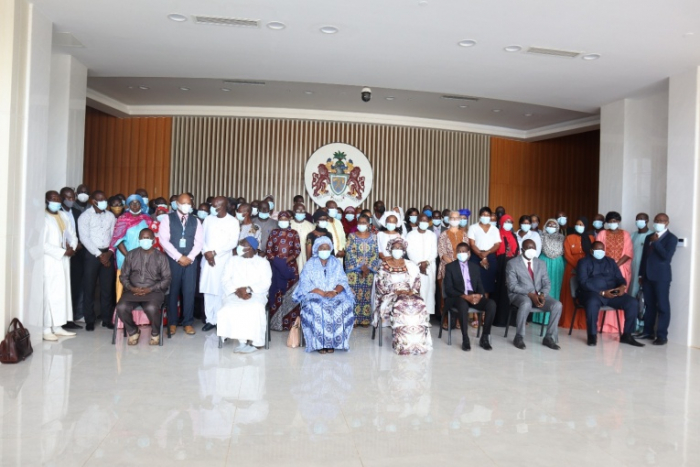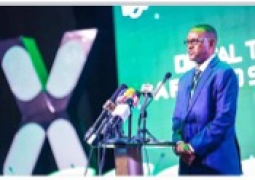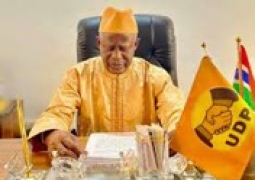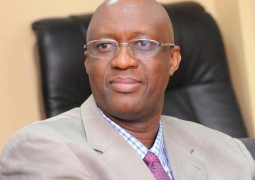
Speaking during the validation of the National Technical and Vocational Education and Training (TVET) Policy of The Gambia, Dr. Touray emphasised that peace is prerequisite for progress.
The National TVET Policy validation, which occurred on Tuesday11th of August, was spearheaded by the Ministry of Higher Education, Research, Science and Technology, in partnership with the Korean International Cooperation Agency (KOICA) and the United Nations Educational Scientific and Cultural Organization (UNESCO) in Dakar.
The Vice President expressed gratitude to be part of such a momentous event. She congratulated the Minister of Higher Education, Research, Science and Technology, Hon. Badara A. Joof for not only conceiving the project, but also leading its implementation. VP Touray admonished the youth of the country to be steadfast, arguing that the outcome of the validation will go a long way in changing the narratives of TVET in the country.
In his remark, the Honourable Minister of Higher Education gave an overview of institutional transformations the Ministry had undertaken. He informed of the transformation of Gambia Technical Training Institute (GTTI) into a University of Science, Engineering and Technology (USET), which is currently receiving mentorship from the Kwame Nkrumah University of Science and Technology in Kumasi, Ghana in the areas of Civil Mechanics, Electrical and Electronic Engineering. “By September, we will start offering Geometrics and it will be validated by the University of De Montfort in The United Kingdom under the World Bank,” Mr. Joof stated.
Minister Joof revealed that 10 students are currently pursuing PhD programmes in Engineering in Kumasi, Ghana. After their studies, they will return to lecture at the University of Science Engineering and Technology (USET) in The Gambia. According to Hon. Joof, USET needs the mentorship to gain the visibility, the experience and pedigree to be able to stand on its own.
Deputising for the minister of Basic and Secondary Education (MoBSE), Mr. Jerreh Sanyang expressed pleasure at the prominence accorded to TVET and deservingly so, he said. DPS Sanyang recognised that the National TVET Policy creates a sector-wide platform for TVET development programmes and caters for all levels of the education system.
The permanent secretary of MoHERST, who chaired the validation exercise, lauded the Vice President for her continuous support and encouragement.
Speaking through video link, the director of UNESCO in Dakar, said the policy under review was consistent with UNESCO’s primary mandate to support member states to position themselves on their sustainable development goals.
“UNESCO Dakar office has collaborated consistently with the government of The Gambia for the development of education, science, culture, communication and information since its establishment,” the Director said.
Doctor Ayele Adubra, the TVET policy consultant from UNESCO Dakar to The Gambia, in her presentation, highlighted the nine pillars of the policy which seek to address pertinent developmental issues in the country. They include governance of TVET; access to TVET; relevance of TVET; apprenticeship and on-the-job training; digitalisation of TVET; funding of TVET; TVET data management; integration into the job market; and TVET attractiveness.
Notwithstanding, the TVET policy consultant went on to emphasise that implementation, is key. Dr. Ayele acknowledged the assurance of the minister of Higher Education in ensuring the policy is put to good use.
The occasion was graced by several Cabinet ministers, civil society organizations, partners and stakeholders of TVET, representatives from TVET institutions in The Gambia, staff of MoHERST, among others.
By Mahzouba Maya Faal
Information Officer, MoHERST
Read Other Articles In Headlines

Prodigy Haddijatou Jobe spearheads literary revolution amongst school youth
Dec 21, 2023, 11:33 AM




